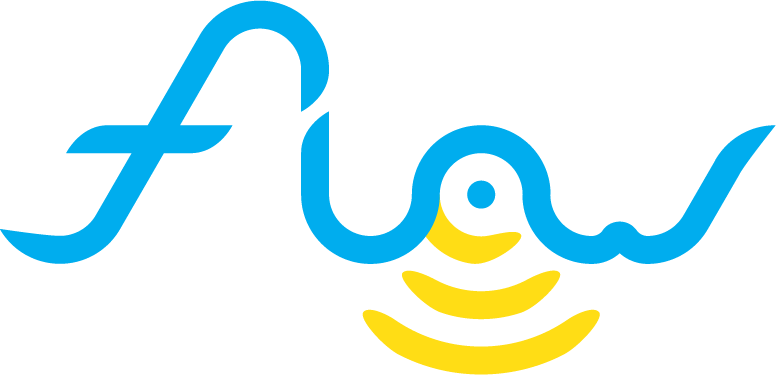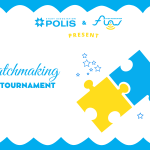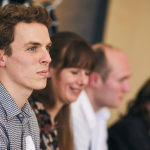Where did you grow up?
I grew up in Ankara, the capital city of Turkey.
If you already did studies in your home country, what were they like?
I went to school in Turkey before moving to the Netherlands for my Bachelor’s. While I did not get to experience the university education in my country, I can say that education in general is a lot more demanding there. What I mean by that is more subjects with more in-depth content, more lecture hours with less flexibility in the schedules, more homework assignments, stricter exams… You name it. One key difference is the application procedure to the university: in Turkey, you take a nationwide exam that covers all the high school education content and you receive a ranking – on which your previously obtained grade average also has an effect – that you then base your university and study preferences on. Those preferences are basically submitted in the form of a list in the order of the one you would like to get into the most to the least. You get assigned to one of your preferences according to not only your own performance, but also your performance in comparison to other people’s and what their preferences are, which makes it all very competitive.
Why did you decide to study in Tilburg?
Like many people in my study (BSc Cognitive Science and Artificial Intelligence), I kind of stumbled upon this program. Back in my home country, I was pretty confused about which Bachelor’s I wanted to pursue. I have always been someone who has several – sometimes completely unrelated – areas of interest, which made it hard for me to settle on one of them. At some point, I wanted to pursue animation and was even preparing a portfolio to apply for that.
My high school program was one that focused on math and science, which limited my options a bit in Turkey, as I couldn’t apply for something like Psychology, for example. I absolutely love biology, but I didn’t want to go into medicine and was considering something like Molecular Biology and Genetics, had I stayed in Turkey. However, I originally had my eyes on Neuroscience – which is not offered as a separate study on Bachelor’s level back home – and so I decided to casually look into programs abroad.
When I found the CSAI program Tilburg University was offering, something just “clicked”. It wasn’t precisely what I was looking for, but I figured it would be nice to also learn some skills relevant to this century, such as programming and I thought that the combination of the two fields was an interesting one. The fact that it was a more specific study – though also very broad – made it attractive for me. Some practical things such as the study being fully in English, the tuition fees for non-EU students being lower compared to the other universities in the Netherlands and getting a scholarship on top of that of course affected my decision as well.
Now, as I’m approaching the end of my second year in this study, I’m glad that I chose it over a study focusing only on Neuroscience! I definitely had a bit of a shift in my interests and am perhaps more excited about the technological aspect of things now.
What did you find difficult when you arrived here?
I would say that the timing of me moving to a different country for my studies made things easier for me. All my friends in Turkey were also going to different universities to pursue different studies, so there wasn’t really a “normal” that I could return to regardless: change was inevitable. That, combined with finding people with whom I got along pretty much immediately meant that, unlike many people, I did not have many difficulties making friends.
I think the hardest thing about it is still the fact that I am sort of living a double life. Whenever I go back home, things are sort of the same, but not quite. While I’m not someone who constantly feels homesick – mostly because I keep myself busy with a lot of things – you feel that way whenever you realize that you and your loved ones are missing some important milestones of each other. And while I love the fact that I can experience different cultures (mainly the Dutch one) through my friends, it is weird to think about how you won’t ever be able to relate to certain things from each other’s childhood or each other’s sense of humor 100%. That sense of “belonging” gets a bit messy when your current reality is no longer taking place in your home country.
What do you think is best about Tilburg University with regard to internationals?
At least within our program, the number of Dutch and non-Dutch people is almost the same. I like that I’m able to interact with people from many different countries so easily and get to learn about their perspectives on things. It is also nice that you can communicate with almost everyone so easily in English. If that wasn’t the case, I probably would have struggled more at the beginning when I did not even know what “gezellig” meant.
What is the biggest difference from studying in your home country?
To this day, the approach the students have towards their studies is surprising to me. As I mentioned, the university entrance procedure in Turkey is a highly stressful one that also doesn’t allow for too much wiggle room after the fact. Here, it seems like so many people have studied (or at least tried studying) something else before their current Bachelor’s already. While it is of course nice that people can change the path they are on when they realize they made a mistake when choosing, I feel that it makes some Dutch students take their education lightly. It is, for example, odd to me that some people don’t seem to even whisper during the lectures when they are talking, when this would be considered disrespectful in some other countries. “Zesjescultuur” is not something I personally relate to either, as I want to do my best and usually aim for higher grades. I think this is something that can sometimes cause mismatched expectations regarding group assignments.
Universities having bigger campuses with more faculties is another thing I was used to from back in Turkey. There is definitely an active student life going on both in Tilburg and back at home, but they are a bit different. There are more student “clubs” as we call them – so, associations – that are more specialized to bring people with the same interests or hobbies together in Turkey. Going out isn’t the same either, and I do not think that I would have enjoyed it much if I stayed in Turkey.
What do you love about Tilburg?
Having lived in a big city in Turkey all my life, I love how accessible everything is in Tilburg. Being able to just walk or cycle anywhere is great and it’s also greener than most other cities in the Netherlands. There isn’t a lot of traffic or noise and it feels like a “simpler life” overall. I always get the impression that Dutch people are good at just enjoying things. They usually don’t seem to be in a rush, which is refreshing to me. It’s also nice that Tilburg is a student city, it makes it livelier.
What is the best place to go for internationals arriving in Tilburg?
I personally really like Piushaven. However, I think the students should explore the city themselves to pick their own favorite places – that’s half of the fun! With regards to more “practical” places, they should make sure to check out International Center Tilburg for useful manuals and helpful services, and Save A Bike, as they will most likely be cycling everywhere.






